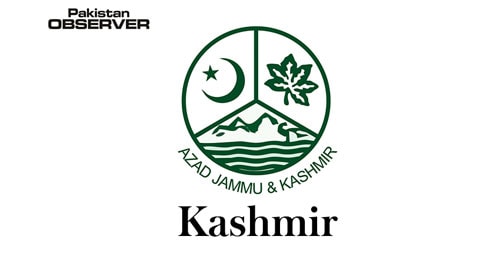When she chose to pursue a career in journalism, Sajida Yousuf knew being a journalist was never meant to be easy in Kashmir.
The 23-year-old Srinagar resident finished her master’s in journalism from the University of Kashmir in 2019 and subsequently started working as a reporter with a local news agency, Kashmir News Observer.
“I turned my passion into a profession,” says Yousuf, sipping coffee in a restaurant located along the Bund in the heart of Srinagar.
As she began her carrier as a journalist, Yousuf, who had earlier worked with the English daily Rising Kashmir, always wanted to amplify voices of the most vulnerable in society: women, children and others whose human rights have been abused.
Her desire began to change in April 2020 when two journalists – Masrat Zahra and Gowher Geelani – were booked under the Unlawful Activities (Prevention) Act or UAPA.
Zahra, a female photojournalist, had posted some of her previous work on social media, while Geelani, a senior journalist and author, had expressed his opinion on his social media accounts.
Police had accused both of them of “glorifying terrorism” and indulging in “anti-national activities”. “I never thought practising journalism would become this much harder in Kashmir. The one thing that strikes my mind whenever I think of doing any sensitive story is UAPA.
You don’t know who will be next in the list of this draconian law,” says Yousuf, who hasn’t only become selective in choosing story ideas, but says she refrains from posting anything on social media that she believes may land her in trouble.
“UAPA is an invisible tape bound around our mouths,” she declares. UAPA enables the state to detain someone without a charge for 180 days, that too, without that person being tried in a court or convicted.
Enacted in 1967, the law was primarily used to combat terror and proscribe known terrorist organisations.
A few days before the Hindu nationalist government of the Bharatiya Janata Party (BJP) unilaterally abrogated the limited autonomy of Kashmir in August 2019, the ruling party revised the law, giving impunity to the state to designate an individual as a terrorist.
The revised law is so harsh and vague that several opposition political parties, retired police officers and formers judges have expressed concern over its “draconian” provisions and consistently asserted that the law is susceptible to misuse.
As the law has been rampantly used in Kashmir over the last couple of years, especially after the BJP J&K’s abrogated special status, critics say, it has more insidious effects on people and its fear leads them to become more conformist.
The widespread use of the law has coerced journalists to self-censor themselves, pressurised dissidents to stay dormant out of fear and pressed social media users to become mute spectators.
Noor Mohammad Baba, a political commentator and retired professor of politics and governance at the Central University of Kashmir, believes the administration in Kashmir has subdued anybody who may speak out by using such laws.
The atmosphere the ruling party generated in Kashmir after the reading down of Article 370 is extremely suppressive, vindictive and non-accommodative,” says Baba.
“As the normal judiciary is missing in action, common people can’t even take recourse to law in the court against UAPA.”
Analysts also say the BJP modified the law just before the revocation of J&K’s semi-autonomous status because the ruling party wanted to use it as a tool to suppress those who criticise them and their policies in Kashmir.
Indeed, a rising spike in UAPA cases since 2019 raises concern over its extensive use and prevalent impact on people.
According to a report by the Indian Express, police have booked 2,364 people under UAPA since 2019 and nearly half of them are still languishing in jail inside and outside the Valley.
Moreover, the data compiled by the National Crime Records Bureau (NCRB) from 2010 to 2018 reveals that alongside Manipur and Assam, Kashmir has witnessed the maximum number of UAPA cases, rising from 45 in 2014 to 245 in 2018. There were no UAPA cases registered in Kashmir from 2010 to 2014.—KMS







